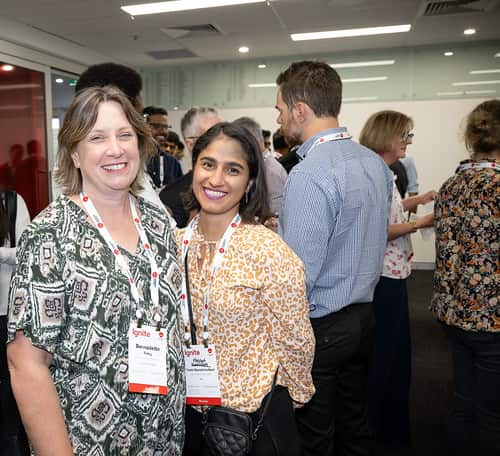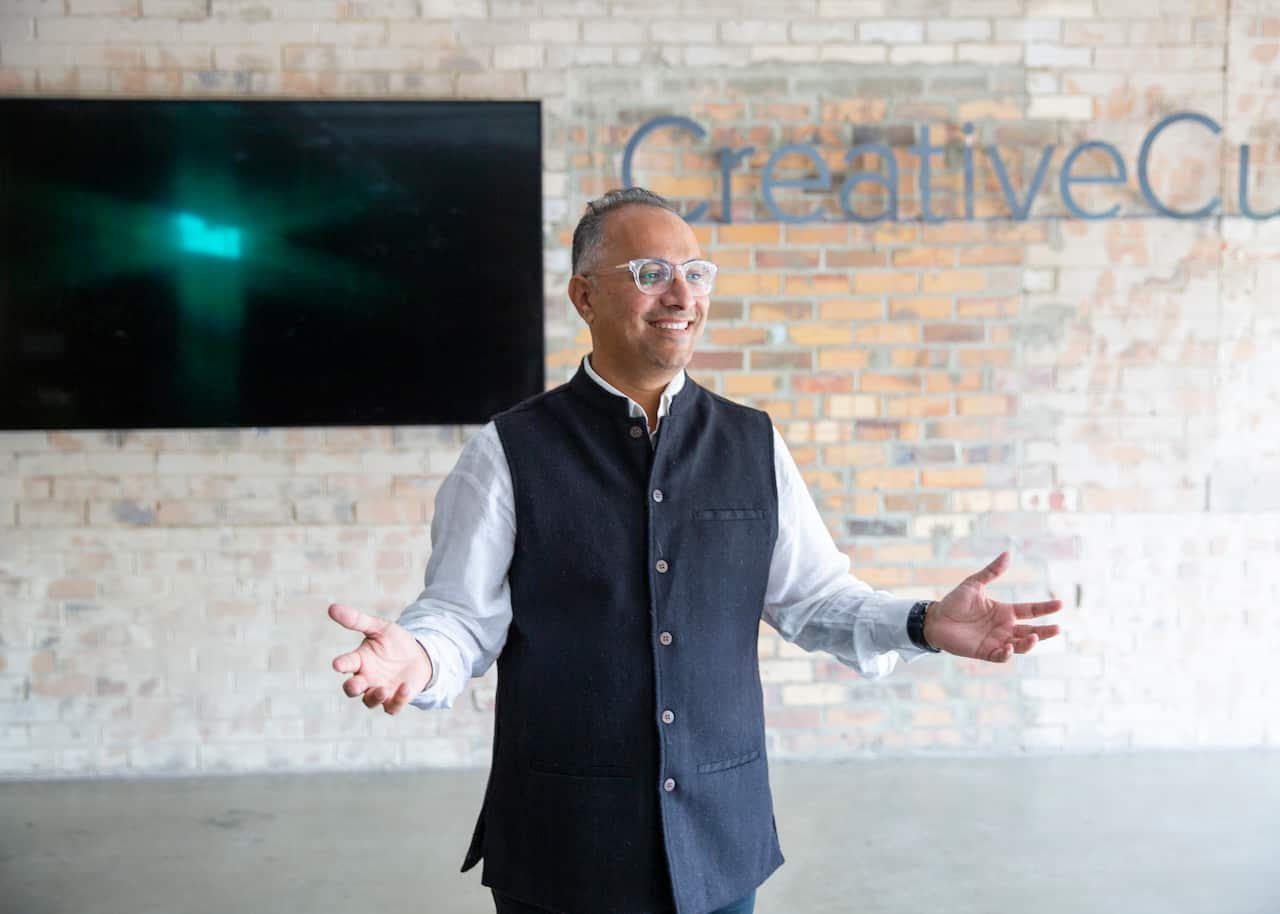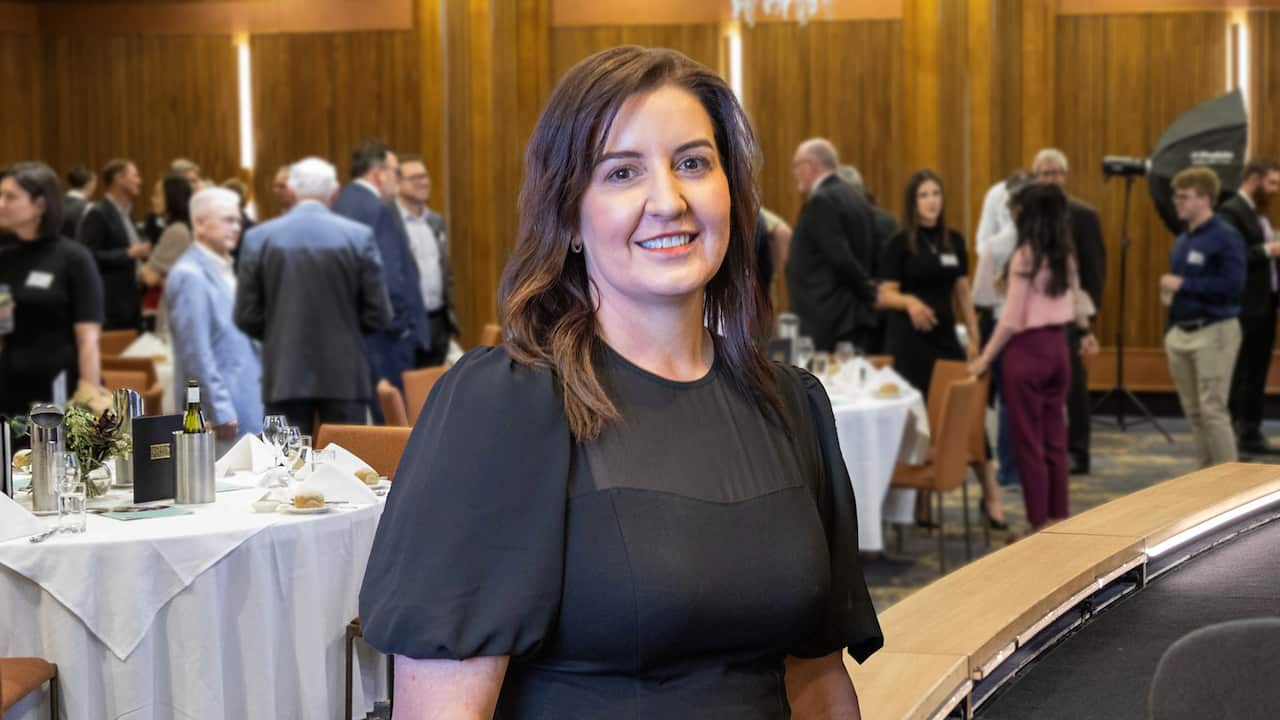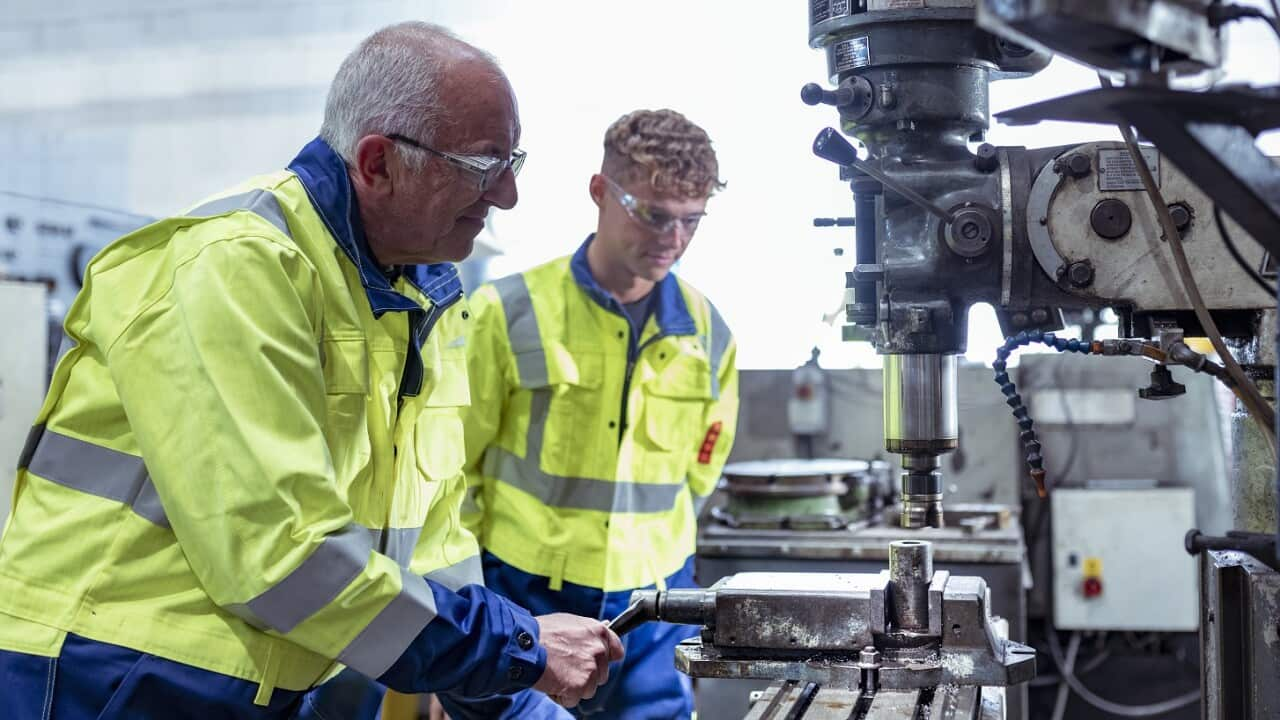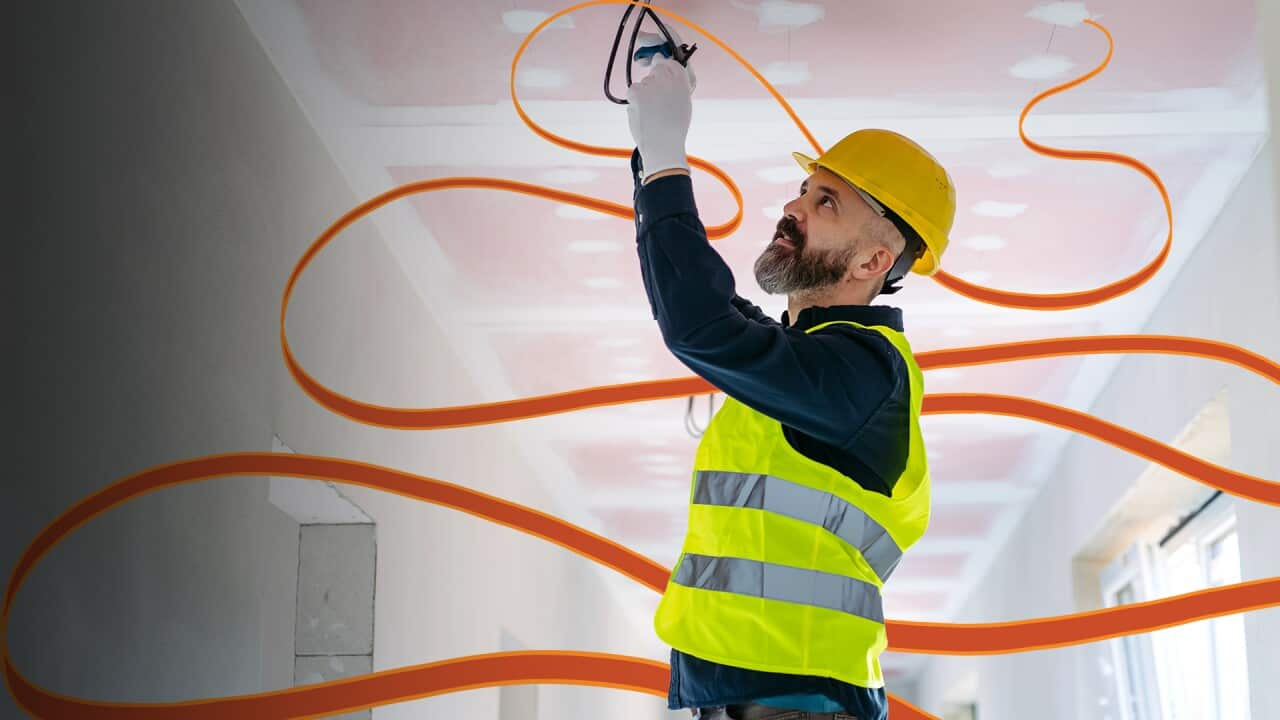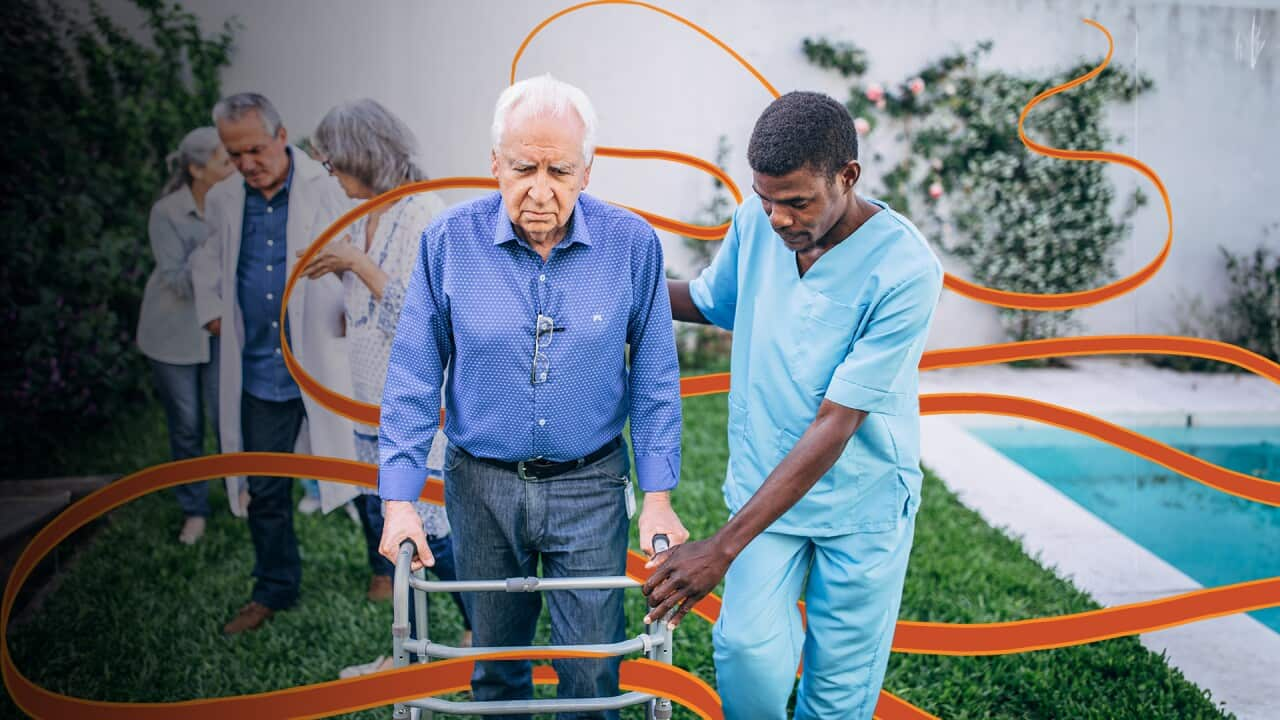spk_0
SBS acknowledges the Traditional Custodians of Country and their connections and continuous care for the skies, lands and waterways across Australia.
spk_1
This is actually happening. I'm actually here. I felt incredibly homesick. I just felt out of place that nothing looks like what I'm used to, high buildings and you know, the hustle and the people and the cars everywhere. It still sometimes bothers me how quiet it is.
spk_2
Welcome to Work in Progress, a podcast that follows the stories of adventurous professionals who decided to call Australia home, with helpful tips, advice from experts, and leading Australian organisations on how to build your career here. I'm your host, Francesca Valdinoci, and today we talk about engineering. Let's get to work.
spk_2
6 in 10 qualified engineers in Australia were born overseas. Among women engineers that figure rises to 74%. By 2026, overseas born engineers
spk_2
are expected to account for 70% of the growth in the engineering workforce. This surge comes at a time when the industry is facing its most severe labor shortage in over a decade. Yet despite this growing demand, only around 40% of Australia's skilled migrant engineers are currently employed in engineering roles.
spk_2
What's standing in the way of migrant engineers and how can they break through to build successful careers in Australia?
spk_1
I remember the flight and I saw Adelaide from the plane and I thought, this is actually happening. This wasn't a dream. I'm actually here. And I was very emotional because I had nobody with me, I couldn't talk to anybody. I felt incredibly homesick. I just felt out of place that nothing looks like what I'm used to.
spk_1
Buildings and you know the hustle and the people and the cars everywhere, it still sometimes bothers me how quiet it is.
spk_2
Hannah Talebi sits on the board of the Mechanical College, an elected group within Engineers Australia, the national peak body for engineering professionals.
spk_2
But every now and then she finds herself missing the vibrant streets of Karaj in Iran, where she was born. Hannah studied and worked in mechanical engineering in her country, but she believes Australia has offered her opportunities to grow, both professionally and personally in ways that simply were not possible back home.
spk_2
Today, she works as a design manager in the water industry, but the journey hasn't been easy. She arrived in 2016 at just 24 years old, with no family, nowhere to live, and only a temporary visa in hand.
spk_1
I think within our community, we get a lot of free advice. And one of the advice was that don't think about your engineering career here. You have no experience, you know, you're an immigrant, you're a woman. It's probably not going to work out. It's not something that is going to happen. I thought, you know, I'm I'm just going to give it a go.
spk_2
And that's exactly what she did, even though stepping into a new country as a young overseas trained engineer, she felt completely unmoored, uncertain, out of place, and alone.
spk_2
The early days were tough, filled with doubts and dead ends, but with no safety net, she knew one thing for sure, she had to make it work and fast.
spk_2
Shellie McDonald is the senior manager of engineering talent at Engineers Australia.
spk_2
She says the first crucial step is understanding exactly what kind of recognition is needed to validate your qualification and work experience.
spk_3
Recognition of overseas qualifications is complex, so understanding what you're doing to obtain a visa versus what you're doing to have your qualifications and skills recognised to work as an engineer is different.
spk_3
So if you already have your visa sorted, you need to apply for a competency assessment which will determine are you recognised as a professional engineer or an engineering technologist or a technician, and that's under the international accord.
spk_2
Engineers Australia is the government approved body responsible for assessing the skills and competencies required in the engineering profession.
spk_2
In the last financial year, 28,000 internationally qualified engineers applied to have their qualification recognised. While international agreements set the standard for recognition, the registration of engineers is managed at the state and territory level in Australia. In some jurisdictions, registration isn't required to practice, while in others it's a legal obligation.
spk_3
Just over the last couple of years, states and territories are bringing in compulsory registration for engineers, so that's another step that you need to consider. And you can use that same assessment, you take that to the relevant state or territory authority and say, I've been assessed, and you get your national registration from there.
spk_2
Another crucial step is understanding the market demand and identifying where your individual skills and specialisations align with the demand.
spk_3
A lot of migrants, they're under the pressure of the visa process, as it is, depending on their visa status going to the next stage, so they've got that consideration to meet their requirements, which often leads them in the wrong direction from an employability perspective, so they might think going to
spk_3
a region will be easier, but they might be an electrical engineer that specialises in grid engineering and solar panels. That regional area might not have a demand for that specific skill set, so it is reading the job market and finding out where your skills are most in demand.
spk_2
Hannah's first job in Australia had little to do with her engineering training. It wasn't until an unexpected stint at a chocolate factory that she finally found her way into her first engineering role.
spk_1
And it was quite exciting because I like messing around with big machines and that sort of thing, but I wasn't an engineering in any, in any sort of way. I was working on the factory floor and I was pretty good at troubleshooting, getting the best efficiencies out of the machines.
spk_1
Being very quick on doing things and I think I caught the eyes of the factory management.
spk_2
Hannah's tenacity and willingness to go above and beyond ultimately earned her the opportunity that she has been waiting for.
spk_1
We had a person who was a project engineer, they quit and they asked me, how come you're so good with this stuff? Like, how come you understand these things super quick, you do everything, you're the best at troubleshooting, you can get the machines to work without calling, you know, the commissioning engineer. I said, I have a degree in mechanical engineering. And they thought, oh, we actually have this opening. Did you want to apply for it? I said, yeah.
spk_2
She thinks she was in the right place at the right time, but of course it was more than that.
spk_1
My boss was also an immigrant. He's a Polish immigrant, and he absolutely understood the dramas and the troubles that you will have to get that first job. So he was incredibly good to me and helpful to me. So that was really the catalyst of it all.
spk_2
Before landing her first engineering role, Hannah applied for over 100 jobs.
spk_2
She knew she'd have to start from the bottom, so she applied for graduate positions, but she wasn't prepared for the toll multiple rejections would take on her mental health.
spk_1
I didn't hear anything back. Usually it was nothing. I had maybe one or two interviews, and it was rejection after rejection. I'm a perfectionist, so rejection is, is not good, and I think this will resonate with a lot of immigrant engineers when you get rejections, you feel.
spk_1
like, I have no worth. You don't think about all the other circumstances that maybe they didn't want to hire, maybe they hired from within, but then you just think that I have no worth, which is the wrong, wrong thinking. And yeah, I had my husband to pick up the pieces after, after all the rejections.
spk_2
Naishadh Gadani knows the journey well. As a career counselor at Monash University, he supports many international engineers as they navigate the Australian job market. Like Hannah, he studied mechanical engineering in his home country of India before moving to Australia.
spk_2
He says the first few months in a new country are all about learning, soaking up information and building job search skills, and not just jumping into applying for each and every position out there.
spk_4
If you look at any job description, it has got two distinct sections, so one which will say roles and responsibility
spk_4
for this job. And another one is, we look for ideal candidate which has got the skills and experience, and that is what we call key selection criteria that the migrants need to focus on. Sometimes key selection criteria have got two ones, one which will say essential, and another will say desirable. Essential means that if you do not meet essential criteria, don't bother applying.
spk_2
It comes to writing your CV or resume, Naishadh recommends an evidence-based approach that highlights your skills and accomplishments throughout your career.
spk_4
But when you come here, resume is going to play a significant role. You've got to be able to explain with evidence, how do you meet those particular criteria.
spk_4
Somebody asks you that you need to have project management experience. You don't write on your resume that I have project management experience. You write, I've worked as a project manager in an infrastructure project for 5 years where I managed a project up to $10 million of value. That says a lot more about that applicant rather than just saying that I managed a project.
spk_2
Simplicity is key too. Naishadh says a resume gets your seat at the table, and it is in the interview where you can expand on your experience and work history.
spk_2
Now, let's talk about the vital role networking plays in establishing a career in Australia.
spk_2
For Shellie, building a professional network is as much part of building an engineering career as being prepared on paper.
spk_3
Research is just so important. When you're a professional, an engineer or otherwise, connecting with those professional associations and societies is so important. So obviously we have us as Engineers Australia, but there are other associations that specialise in different types of engineering.
spk_3
So connecting with them, and this is research that people can do before they arrive in Australia or why they're here. And I think building that confidence too, in your local area, build those networks, whether you're in a big city or in a regional area. It takes a lot of confidence in your arrival to put yourself in a difficult situation where you don't know anyone, but that's gonna be one of your greatest tools is building your network.
spk_2
Hannah is an introvert by nature. Her comfort zone is her cat and her books. So when she first arrived in Australia, she didn't do much networking. Over time, she came to realise that one of the biggest challenges for migrants trying to break into the job market is the absence of a local network.
spk_1
Going out, talking to people, putting yourself out that, you know, it's a vulnerability.
spk_1
Because you might get the rejection, that's really hard, just not knowing where to start a conversation as well, that's another one. You don't want to say the wrong thing, you don't want to make people feel awkward or anything like that, and with language barriers, sometimes you just say something and it just doesn't sound right.
spk_2
Experience taught Hannah how crucial networking is when it comes to building your career in Australia.
spk_1
In Australia especially, I think a lot of jobs come around by just recommending someone. It's happened to me for sure, that you know you don't specifically have a have a role, but you want that person so you just bring them on board. That happens a fair bit and because
spk_1
you're an immigrant, you studied somewhere else, you don't have that network of professionals that can, you know, recommend you or come up with ideas or companies or people that you can get a leg up. That's the biggest challenge for immigrants.
spk_2
Another challenge many migrants face when looking for work in Australia is the lack of local experience, something Hannah did not fully understand at first.
spk_1
What difference does it make if you're an engineer in Australia or somewhere else? The spanner does the same thing as it did back home as it does here. There are things that you need to learn within your
spk_1
role for sure. There's no problem learning things, Australian standards or how things are done here. If you're never given the opportunity to have the local experience, how are you going to get the local experience? And ironic thing is that a lot of Australian standards and things that we use here are based on, you know, European ones or international ones.
spk_2
For Naishadh, finding your way into your first job takes an open mind and a flexible approach.
spk_4
In Australia, around three quarters of the jobs are unadvertised jobs because hiring is a huge cost to the employer. On average, an engineer might end up 10,000 to 15,000 to 20,000 dollars to hire. The time involved, the recruitment fees involved, you know, it's a huge cost
spk_4
exercise for the employers, but at the same time people find jobs by applying for the job. So I'm not saying that you should put all the eggs in one basket and just network and never consider applying. No, you've got to do everything.
spk_2
Hanna believes Australia has brought her one step closer to becoming the respected professional she's aspired to be ever since she made the bold decision to study engineering in Iran.
spk_2
Although, she says, there's still work to be done here too, particularly when it comes to equality in the workforce.
spk_2
Shellie believes things will change significantly over the next decade, and not just in terms of gender representation in the industry.
spk_3
We do see that we've got a huge transition in the workforce where we have a lot of engineers that are set to retire over the next 5 years. We have a big gap in middle management, which then for new engineers coming in, that's a challenge for them to have those mentors and those supervisors, and that's where
spk_3
a lot of the migrant engineers come into play because they've had international experience, they've worked in their profession, so overseas qualified engineers can help support the workforce from that middle management and experience.
spk_2
Reflecting on her own journey, Hannah has this advice for all the future engineers.
spk_1
Talk to people. You never know who's going to be that one person that helps you, and you always need someone to
spk_1
help you, and you won't find that person if you stay within your bubble. You have to get out of your comfort zone, you have to talk to people and you have to network. There's no way of getting around that.
spk_2
This is an SBS Audio podcast. In Work in Progress, we dive into careers across nursing, early childhood education, engineering, ICT, construction, and aged care, unpacking the journeys, challenges and rewards along the way.
spk_2
Work in Progress is created and hosted by me, Francesca Valdinoci. Sound design is by Maram Ismail, and the managing editor is Roza Germian.
spk_2
For more helpful tips on settling into your new life in Australia, don't forget to visit Australiaexplained. Thanks for listening and stay tuned for more.
